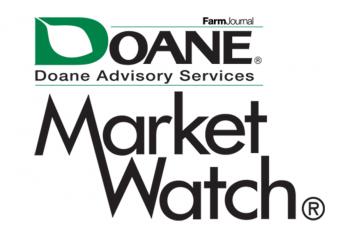Evening Report | March 21, 2023

Check our advice monitor on ProFarmer.com for updates to our marketing plan.
Firm raises Brazilian soybean crop forecast, cuts corn peg... After surveying soybean fields across Brazil, Agroconsult raised its Brazilian soybean crop forecast by 2 MMT to a record 155 MMT. The firm expects Brazil to export a record 96 MMT of soybeans in 2022-23.
Agroconsult cut its Brazilian corn crop estimate to 125.5 MMT, down 5.4 MMT from its previous forecast, with 4.1 MMT of the reduction due to an expected smaller safrinha crop. The firm says planting delays create greater risks for the safrinha corn crop and some areas won’t get all of the intended acres planted. Agroconsult expects Brazil to export 51.9 MMT of corn in 2022-23.
U.S. pushes back against Russian demands for grain deal... The U.S. pushed back on Russian demands that Western sanctions be eased before it allows Ukrainian Black Sea grain exports beyond mid-May, saying there were no restrictions on Russian ag products or fertilizer. The U.S. strongly supports United Nations efforts to get Ukrainian and Russian agricultural products to world markets, a State Department spokesperson said, adding it has “gone to extraordinary lengths to clarify that we have carved food and fertilizer out from our sanctions imposed on Russia. The only prohibitions on food and fertilizer exports from Russia are those imposed by the Government of the Russian Federation,” the spokesperson said. “Russia is the one restricting its exports – it imposed export quotas on certain fertilizers, and recently extended them through the spring.”
Deputy UN spokesman Farhan Haq said on Monday that while those Russian exports were not sanctioned, the United Nations had been trying to “increase the level of comfort” among governments in order to free up the passage of these exports.
“It’s been difficult, but we’re going to continue... And we’ll see what progress can be made,” he said. “It’s important not simply... for Russia, but for the people around the world. Everyone needs these crops and this fertilizer in order to continue to ensure that food production is at a decent rate.”
S&P Global forecasts more corn and soybean acres this year... S&P Global reportedly estimates corn plantings at 90.9 million acres, up 2.3 million from 2022. The firm forecasts soybean plantings at 88.2 million acres, up 1.4 million. Most of the net acreage increase comes from North Dakota.
S&P Global forecasts other spring wheat acreage at 10.6 million, down 235,000 acres from 2022, with all cotton acres at 10.892 million, down 2.87 million from 2022.
We’ll have results of our spring acreage survey on Friday afternoon. USDA’s Prospective Plantings Report will be released March 31.
EPA crushing soyoil... A nascent boom in the market for soybean oil is facing unexpected headwinds from the Environmental Protection Agency, the Wall Street Journal reports. The commodity is tied up in the meeting point between agriculture and fuel, leaving it subject to shifts in energy markets. Soybean oil futures tumbled after EPA last December proposed to mandate less use of biomass-based diesel through 2025 than expected. The price of soybean oil has roughly doubled over the past three years, largely because of demand to make fuel for trucks and trains. Visions of soybean-powered truck fleets prompted a kind of green-oil boom in the Midwest, with bean-crushing plants in place of derricks and drills. But companies have little economic motive to make diesel from soybean oil without government incentives, which are aimed at reducing carbon emissions, so the EPA news has put some projects on pause, the article notes.
EU opens crisis fund for nations under influx of Ukraine crops... The European Union is activating a crisis reserve for farmers in three eastern countries handling an influx of Ukrainian supplies that has reduced local prices, Bloomberg reports. The European Commission will provide 56 million euros ($60 million) to Romania, Bulgaria and Poland, Agriculture Commissioner Janusz Wojciechowski said. Three of Ukraine’s major Black Sea ports reopened to grain exports last year, but seaborne trade remains slower than normal, forcing farmers to continue routing crops via EU neighbors.
The decision was triggered for Bulgaria and Poland as the combination of their own production and imports from Ukraine exceeded the five-year average before the war. Romania was added due to its hub position for the so-called solidarity lanes, the commissioner said.
Romania will receive 10 million euros, Bulgaria about 17 million euros and Poland 30 million euros. The amount can be doubled through co-financing from the budgets of the member states. Hungary and Slovakia have also had more Ukrainian grain supplies coming in. But they will not receive support from the fund as their combined volumes of production and imports do not exceed the five-year average, Wojciechowski said.
USDA urged to extend Product of USA comment period... More than 50 comments have been received on the proposed rule from USDA’s Food Safety and Inspection Service (FSIS) to amend regulations relative to the voluntary Product of USA labeling effort. The proposed rule was published March 13 in the Federal Register with comments due by May 12.
The proposed rule would require that single-ingredient products and multi-ingredient products if the components of the product are from animals born, raised, slaughtered and processed in the U.S.
The North American Meat Institute (NAMI) filed comments March 14 requesting an extension of the public comment period of at least 90 days, saying the change FSIS is proposing to extend the Product of USA labeling effort to processed products involved new items being covered. NAMI said it also had embarked on survey work on origin claims that it started when FSIS denied petitions on the Product of USA labeling in March 2020.
Port talks turn sour... Bloomberg reports a new spat in the months-long contract negotiations for U.S. West Coast dockworkers comes at a critical time. Importers and retailers are negotiating service contracts with ocean carriers for the coming year, deciding not only how much cargo they’ll need to move on ships, but also which ports to route it through. On Monday, the Pacific Maritime Association (PMA), representing carriers and terminal operators, alleged that dockworkers are failing to stagger lunch breaks, causing delays for truckers at terminal gates. The International Longshore and Warehouse Union, representing 22,000 dockworkers from California to Washington, said trucks can form queues for lots of reasons and accused the PMA of using the queues to influence public opinion. The two sides had pledged when the talks began last May not to speak to the media during the negotiations and to continue port operations without delays or disruptions. High-level meetings resumed today.
Canadian consumer inflation the lowest in 13 months... Canada’s annual inflation rate slowed to 5.2% in February from 5.9% the previous month. That was the lowest inflation rate in 13 months and the biggest monthly decline in almost three years. Excluding food and energy, core inflation rose 4.8% versus a year ago compared with a 4.9% increase in January. Economists say the easing consumer price data should cause the Bank of Canada to pause its monetary tightening.






